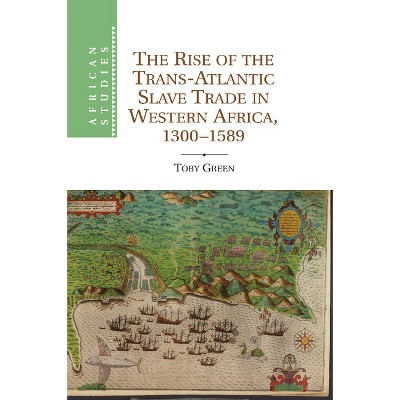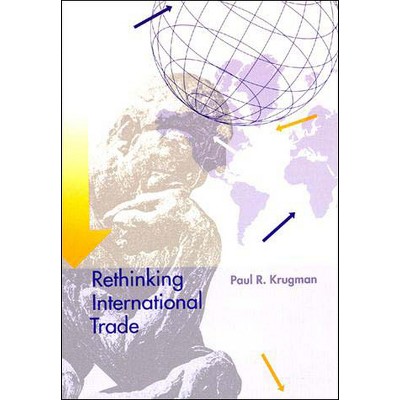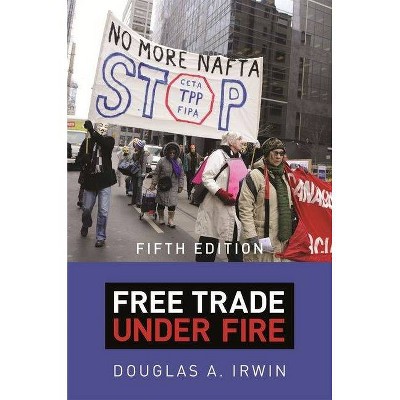Sponsored

Africa and Preferential Trade - by Richard E Mshomba (Hardcover)
In Stock
Sponsored
About this item
Highlights
- Nonreciprocal preferential trade arrangements are a defining feature of the relationship between developed and developing countries dating back to the colonial era.
- About the Author: Richard E. Mshomba is Professor Emeritus of Economics at La Salle University.
- 266 Pages
- Business + Money Management, International
Description
About the Book
"Nonreciprocal preferential trade arrangements are a defining feature of the relationship between developed and developing countries dating back to the colonial era. In the late 1950s, these arrangements started to take a multilateral form when members of the European Economic Community established special trade arrangements with their colonies. Since then, several trade arrangements have featured African countries among the preference-receiving countries. Yet it is not always clear how preferential these arrangements are and whether they in fact help African countries or instead lead them to perpetual dependence on specific markets and products. Richard E. Mshomba carefully examines the history of these programs and their salient features, and analyzes negotiations between the EU and African countries to form Economic Partnership Agreements. Nonreciprocal preferential trade arrangements are often unpredictable, since the duration and magnitude of preferences are at the discretion of the preference-giving countries. However, when used in conjunction with other development programs and with laws and regulations that encourage long-term investment and protect employees, they can increase economic opportunities and foster human development. This book recognizes the potential impact of nonreciprocal preferential trade arrangements and provides recommendations to increase their viability"--Book Synopsis
Nonreciprocal preferential trade arrangements are a defining feature of the relationship between developed and developing countries dating back to the colonial era. In the late 1950s, these arrangements started to take a multilateral form when members of the European Economic Community established special trade arrangements with their colonies. Since then, several trade arrangements have featured African countries among the preference-receiving countries. Yet it is not always clear how preferential these arrangements are and whether they in fact help African countries or instead lead them to perpetual dependence on specific markets and products.
Richard E. Mshomba carefully examines the history of these programs and their salient features. He analyzes negotiations between the EU and African countries to form Economic Partnership Agreements. Nonreciprocal preferential trade arrangements are often unpredictable, since the duration and magnitude of preferences are at the discretion of the preference-giving countries. However, when used in conjunction with other development programs and with laws and regulations that encourage long-term investment and protect employees, they can increase economic opportunities and foster human development. This book recognizes the potential impact of nonreciprocal preferential trade arrangements and provides recommendations to increase their viability.
Review Quotes
"This is a well-written book both in breadth and depth. It stands out within the wider literature on PTAs. The cited literature attests to its coverage and the approach, its novelty not just on the topic of NRPTAs, but also, the focus on Africa. It provides tangible insights and recommendations for policymakers and other stakeholders and something to poke the intellectual curiosity of researchers and students in a wide range of disciplines including economics, diplomacy and international relations, political science, and related disciplines."--Evelyn (Wamboye) Nyadwera, Journal of Economic Literature
"Mshomba makes very evident the complexity of international trade treaties and the difficulties caused by the many trade organizations to which African countries belong. He presents changes that could make PTAs more beneficial to the receiving countries in Africa as well as other requirements for development. Recommended."--J. E. Weaver, CHOICE
"'Trade, not aid' has become the banner slogan signaling donor fatigue among Western nations. Many nations have turned, instead, to non-reciprocal preferential trade agreements as a vehicle for promoting economic development in poorer countries. But have these agreements really worked? To what extent? And can they be made to work more effectively? Mshomba's cogent, accessible, and nuanced book offers persuasive answers to these questions." --Michael Lofchie, UCLA
"An incisive analysis of how African countries have or have not benefited from non-reciprocal trade arrangements with the European Union, the US, and China. Mshomba shows clearly how, with the right domestic policies, African countries can benefit from these programs. But he also cautions countries against dependence on these arrangements, which are controlled by the preference-giving countries." --Taufila Nyamadzabo, former Executive Director of Africa Group 1, World Bank Group
"An invaluable survey of the strengths and weaknesses of trade preference programs.While the benefits of these programs are not automatic, Mshomba makes crystal clear that sustained market access to the world's largest economies, through programs such as GSP and the African Growth and Opportunity Act, can be vital to Africa's prosperity." --Witney Schneidman, Brookings Institution
"Mshomba draws on trade theory, history, and political economy to explain the complex evolution of non-reciprocal trade preferences since the 1960s and their ambiguous impacts on export diversification and economic development in Sub-Saharan Africa. Lucidly written and well documented, this book is a crucial resource for policymakers and scholars alike." --Stephen O'Connell, Swarthmore College
About the Author
Richard E. Mshomba is Professor Emeritus of Economics at La Salle University. Born and raised in Arusha, Tanzania, he is the author of Africa in the Global Economy (2000), Africa and the World Trade Organization (2009), and Economic Integration in Africa (2017).Shipping details
Return details
Frequently bought together


Trending Non-Fiction















